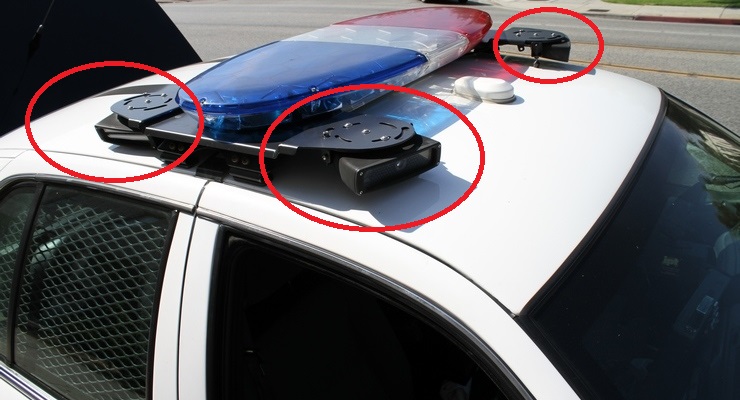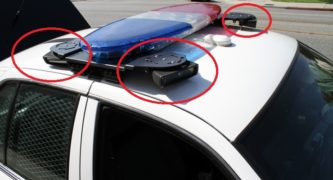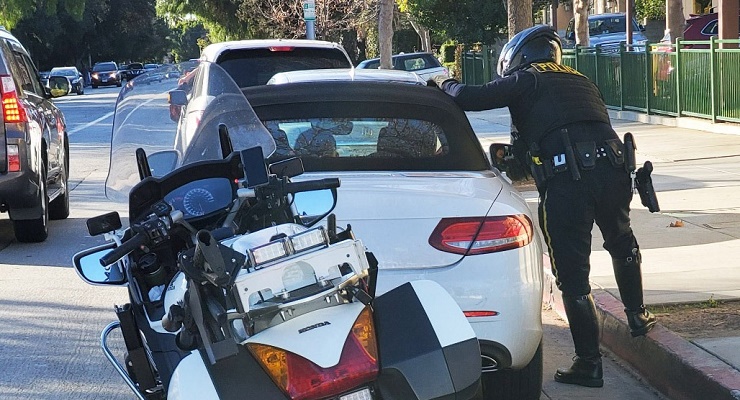
The Pasadena City Council on Monday unanimously approved spending up to $80,000 on three new mobile Automated License Plate Readers (ALPRs) for the Police Department – but, in response to numerous public comments expressing concerns about privacy and civil-rights issues, attached a stipulation to the purchase.
The deal with Vigilant Solutions of northern Livermore, Calif., for both hardware and software is contingent on Vigilant assuring the city it will not use the data collected by the ALPRs in any way that violates city or PPD guidelines, nor will Vigilant sell the Pasadena data to any non-law-enforcement agencies such as insurance companies.
The stipulation will be included in contract language with Vigilant regarding the purchase, said City Manager Steve Mermell.
“If we can’t get that agreement, then obviously we would return to the council,’’ Mermell said.
The detour in the purchase process came after several dozen written comments from the public were read aloud by City Clerk Mark Jomsky, expressing concerns about ALPRs possibly being misused to violate people’s civil rights through “abusive tracking” and “discriminatory targeting,” among other worries.
Those comments echoed others read aloud during last week’s Public Safety Committee meeting, when several commenters also worried that data could be transmitted to ICE officials to trace undocumented immigrants.
PPD Commander Jason Clawson on Monday gave the City Council the same PowerPoint presentation he gave to the Public Safety Committee, reiterating that the ALPRs capture “[license] numbers only, not biometric data,” and that the data is not shared with ICE.
What’s more, Clawson stressed, the information gathered is retrieved only in connection with open crime cases or, sometimes, missing persons. He said the data is stored for two years and then discarded.
Clawson said the ALPR equipment – which is used in PPD squad cars – has been a great aid in police investigations, resulting in 605 “hits” for stolen vehicles or other crimes since the start of 2019.
While the data is shared with other police agencies, “robust policies and procedures are in place to prevent the system and the information it gathers from being used inappropriately or differently from its intended purpose,” Clawson said. “Policies hold personnel accountable for any misuse or abuse of the system.”
“[The data is] used only for law enforcement investigation,’’ Clawson said, adding there are “monthly audits to ensure data is not being inappropriately shared.’’
The Public Safety Committee had recommended the full council approve the purchase.
But while the city has its safeguards in place, Council Members Victor Gordo and John J. Kennedy on Monday expressed concerns about whether Vigilant is also held to the same standards.
When Gordo asked Clawson about a vendor such as Vigilant possibly selling the information to non-law enforcement agencies such as insurance companies, Clawson replied, “That I don’t know.”
Kennedy asked City Attorney Michele Beal Bagneris “if we could include in the contract certain provisions that really address these type of privacy issues and the limited-use requirement.’’
“If that is possible, I think it may satisfy some of the concerns that have been raised by members of the public and certainly my colleagues,’’ Kennedy said. “It’s a reasonable expectation that the vendor would not be sharing this information, but that needs to be confirmed by staff.’’
Bagneris replied, “We can certainly seek to negotiate that and include that language in there and report back to the council.’’
Mermell then suggested the council approve the purchase “subject to the city getting the provision in the agreement that data shall not be shared with any non-police agency nor shall Vigilant sell or share City of Pasadena data with any non-police agency.’’
According to Mermell, the purchases would be “really just to refresh our existing fleet of automatic license plate readers,” and not an expansion of the PPD’s use of the technology.
The PPD has been using Vigilant systems since 2017 after the department started transitioning from another ALPR contractor whose systems became outdated. Five of the former contractor’s ALPRs have been replaced since then, and the department is looking to replace 11 remaining devices within the next three to four years.
Some public commenters on Monday called for the PPD to discontinue the use of ALPRs entirely, calling their use, among other things, “Orwellian technology,” “unnecessary and rights-invasive, especially to immigrants’’ and “a threat to city’s status as sanctuary city.’’
But Public Safety Committee members last week – and the full council on Monday – expressed satisfaction that the PPD’s safeguards sufficiently address those concerns.
“I’m not insensitive to the concerns that people have, but I don’t think that this is the place to sort of tie one arm behind our back as it were in terms of preserving and promoting public safety in Pasadena by not doing a program like this,’’ Council Member Steve Madison said last week. “I definitely think we need to avail ourselves of this.”
Added Kennedy, who chairs the Public Safety Committee, “It’s for a legitimate purpose.’’














 0 comments
0 comments


